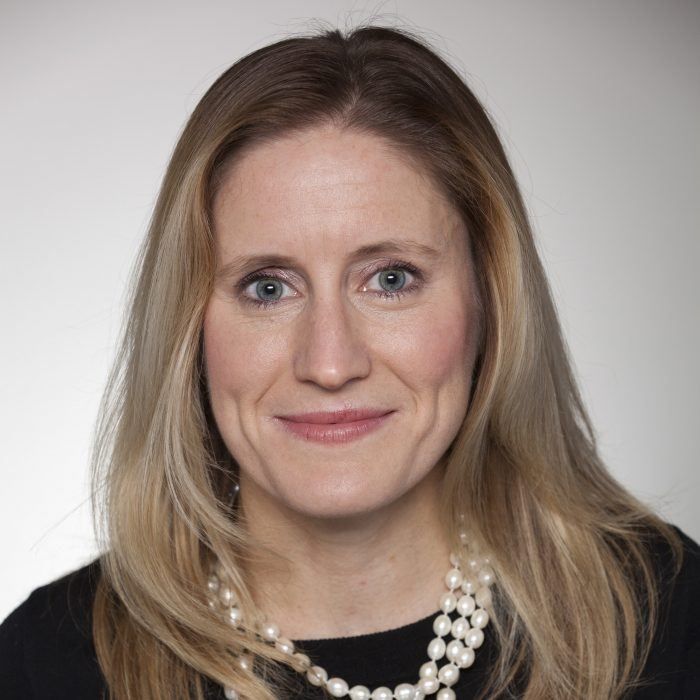Industry Insights
What CES Announcements Predict for Health Marketers
The Consumer Electronics Show (CES) is one of the largest technology events of the year. Held in Vegas every January, it features the latest and greatest in technology innovations and developments — with companies showing off their biggest technology bets for the year. Google, for example, announced that Google Assistant will be available on one […]

Carrie Liken
Jan 23, 2019

The Consumer Electronics Show (CES) is one of the largest technology events of the year. Held in Vegas every January, it features the latest and greatest in technology innovations and developments — with companies showing off their biggest technology bets for the year. Google, for example, announced that Google Assistant will be available on one billion devices by the end of January 2019. That's a lot of devices!
This year, the focus of CES was on voice technology. As voice is such a hot topic in healthcare and with health systems, I thought I would break down some of the big announcements from Google and Amazon, and outline what I think each means for healthcare — and how you can prepare for the future of discovery via voice.
Google Assistant will be able to check you into flights and book hotels.
This is a continuation of the Google Duplex announcement from Google I/O in May 2018. Google is making good on their promise to have Google Assistant be more of an agent working on our behalf. Google has relationships with airlines and hotel partners (they bought ITA in 2011), so it's natural that they start with the travel industry.
So what does this mean for healthcare?
- As more people utilize Google Assistant's abilities to do things on their behalf, they will become more used to having an AI-powered device work its magic.
- This will increase expectations of what the device should be able to do in healthcare, too. Consumers will come to expect smart devices like Google Home to book an appointment with a primary care provider, or with a dentist.
- Many healthcare organizations will be woefully unprepared for this day, partly because these devices are not yet HIPAA compliant, but also because their data is still unstructured. Unless healthcare organizations start to think about the structuring data about their providers and provider availability, and connecting platforms internally via API, healthcare will continue to lag behind other industries in its ability to serve consumer desire. Today, 42% of patients would like to book an appointment using their intelligent voice device.
Amazon announced integrations with third-party devices, including those within automobiles, smart home devices, home security, and more.
Amazon is estimated to own 41% of the global speaker market, so this extension of the Amazon operating system onto third-party devices extends its reach to many more devices — reaching more people at various points of the day.
So what does this mean for healthcare?
- Extending presence on additional devices increases Amazon's reach into the consumer's day. Where Amazon used to be used for product search and purchasing, we're now seeing Amazon move into voice-activated activities and overall queries (encroaching on Google's domain). Both Amazon and Google are training healthcare consumers to search, but consumers are device-agnostic when performing the search. The more the consumer is using voice to activate and search, the more healthcare organizations will need to ensure the right data surfaces the right answers at the right time.
- As Amazon continues to move into the auto space, expect to see more consumers using it to navigate. If someone using Alexa in an automobile asks the voice assistant to navigate to her primary care provider, it's imperative that the health system has provided the right information to Alexa. This is the only way to ensure she actually arrives at the right location (as opposed to an empty Denny's parking lot) on time (so as not to miss an appointment). Structured data can help with this, as can working with an organization like Yext to ensure the data syncs with voice services like Alexa.
The announcements at CES were not surprising, given the explosion of voice search and other AI-driven discovery services over the last few years. Between Amazon and Google, it is certainly a race to see who can dominate (quite literally) share of voice. Amazon is poised to control the commerce-focused queries related to searching for and buying a product. But as they continue to inch into the healthcare space (e.g., PillPack, a joint venture with JP Morgan and Berkshire Hathaway), Amazon may have some tricks up its sleeve.
Google is poised to control queries for information, plus determining advertising capabilities and revenue-driving opportunities for real searches. Google's bread and butter business is ad-based, and since we're already starting to see activity on booking hotel and restaurant reservations, booking appointments via voice in the healthcare space may not be far off.
Both organizations will coexist and continue to grow. The main point is that your device — whichever one you use — is only as good as the data sent to it. If your healthcare organization's data is not structured in a way that it can be interpreted by AI-driven discovery services, or if your data is not syncing with these services, then you will have very little chance of participating in this brave new world.
